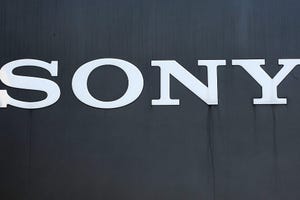Philip Closes Out Recall Saga in the US
The company said it would pay $1.1 billion to settle claims over its recalled Respironics devices.
April 29, 2024

At a Glance
- The recalls were due to issues with sound abatement foam in the devices, which could degrade and emit toxic particles.
- Despite the settlement, Philips said it could engage in bolt-on acquisitions.
- The settlement news caused the company's shares to jump nearly 30% on Monday.
Philips has announced it will pay $1.1 billion to settle claims over its recalled Respironics devices in the United States. News of the settlement caused the Amsterdam, Netherlands-based companies’ shares to jump nearly 30% on Monday.
The settlement ties up a nearly three-year long recall saga that included Philips parting ways with its longtime CEO; the company losing significant market value; layoffs, and federal probes. The recalls were related to millions of ventilators and sleep apnea machines that used sound abatement foam that could degrade and emit toxic particles into the airway.
The company said that under the settlement it did not admit any fault or liability or that any injuries were caused by Respironics devices.
During an earnings call, Roy Jakobs, Philips CEO, said the settlement “ends the uncertainty with litigation in the U.S., according to a Seeking Alpha transcript.
“I think we are very firm that we believe that for the U.S., this is as final as it can get,” Jakobs said according to a Seeking Alpha transcript of the earnings call. “The settlement addresses, all the 60,000 known claimants as part of the Census registry, including the 700 filed cases that were active.”
He noted the payments are expected in 2025 and will be fully funded from Philips's cash flow generation.
According to a Seeking Alpha transcript of the call, he added, “We do not believe that there is a meaningful number of plaintiffs out there that will still come forward. That's also the view of the plaintiffs themselves. And if they do, they will be subject to a so-called Lone Pine order, which requires them to bring forward the full case at once or else they will be dismissed, and also, they will need to kind of comfort with all the individual evidence as everything that was gathered as part of this process now will cease to exist.”
Earlier this year, Philips, after a year and a half of discussions with the Department of Justice (DOJ) on behalf of FDA, announced a consent decree. The decree would outline a roadmap of defined actions, milestones, and deliverables to demonstrate compliance with regulatory requirements and to restore the business.
The settlement won’t get in the way of the company making acquisitions, Jakobs said.
“And the litigation settlement we have today, we can actually pay in full out of our operational cash flow,” he said, according to a Seeking Alpha transcript of the call. “That also means that we will indeed be able to do bolt-on acquisitions. Of course, those need to be the right ones, and we do kind of need to look at our own priorities first, which means extracting value out of the current portfolio of assets that we have because we have a lot of potential there.”
About the Author(s)
You May Also Like




